Media Statement by the National Biosafety Authority Chief Executive Officer/ Registrar Mr. Lackson Tonga Thursday 6th December 2018 at Best Western Hotel, Lusaka-Zambia Genetically Modified Organisms (GMOS) Media Briefing
Notice: Undefined index: catFilterList in /home/zambi/public_html/wp-content/plugins/wp-likes/api.php on line 243
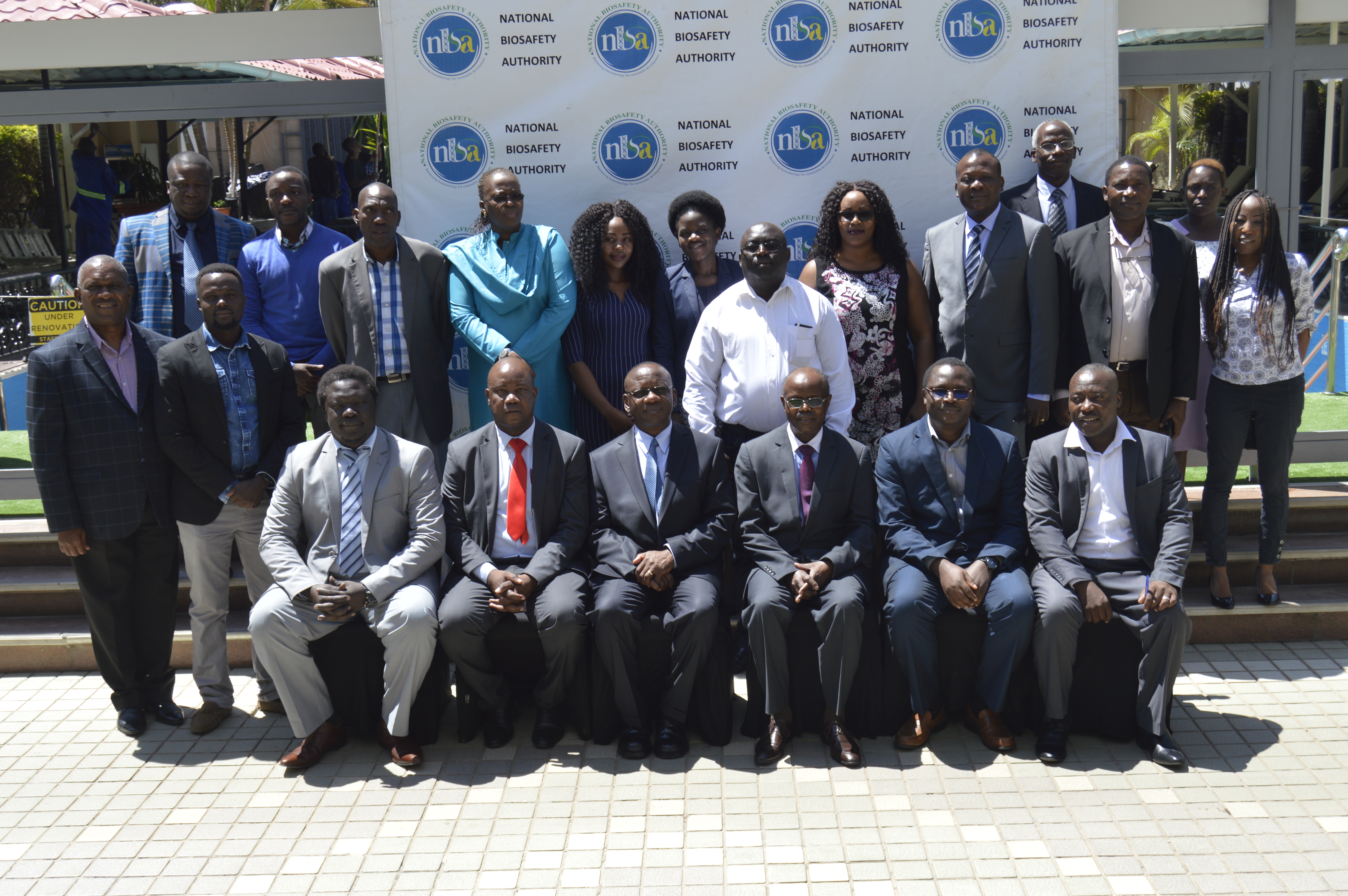
NBA Board Chairperson Dr Paul Zambezi (standing) with NBA CEO Mr Lackson Tonga (l) and NEPAD-ABNE Representative Dr. Silas Obukisia (r) during the official opening of the Guidelines and Regulations consultative workshop
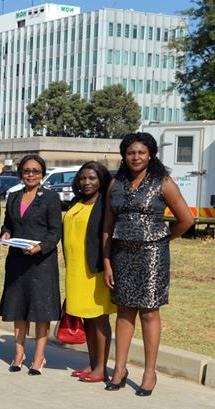
Sandra Lombe-Mulowa
Sandra Lombe-Mulowa
Statement by the National Biosafety Authority Chief Executive Officer/ Registrar Mr. Lackson Tonga Thursday 6th December 2018 at Best Western Hotel, Lusaka-Zambia Genetically Modified Organisms (GMOS) Media Briefing
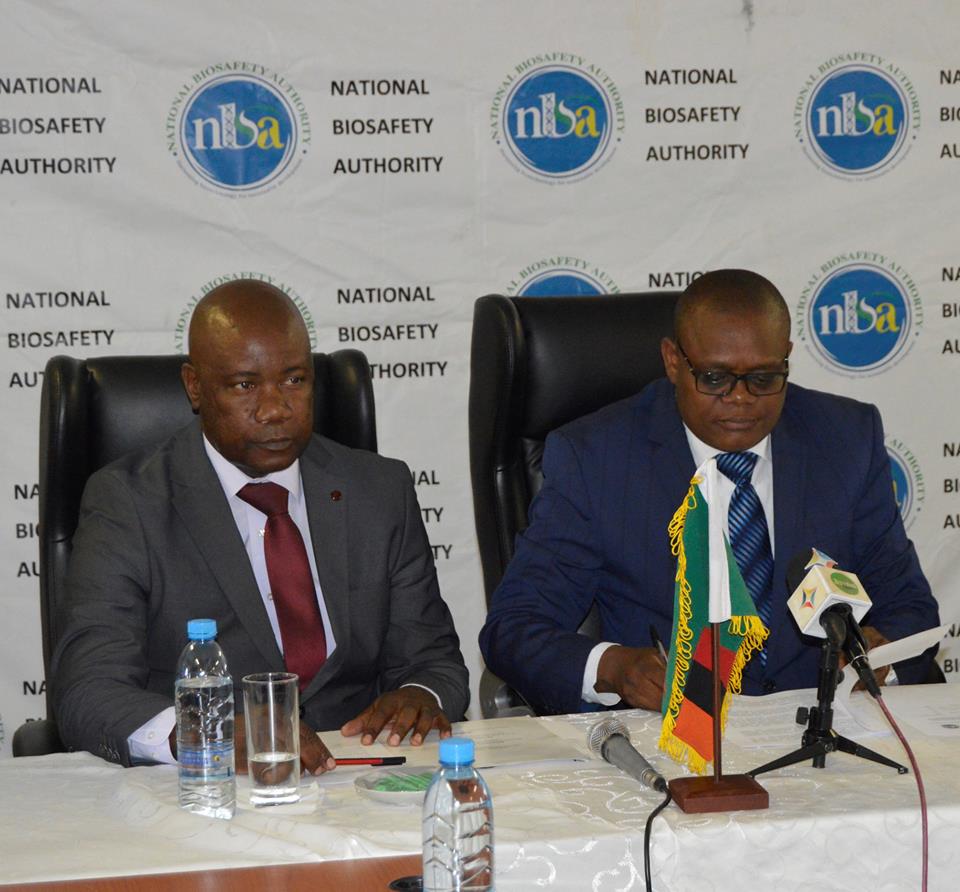
National Biosafety Authority (NBA) Registrar and CEO Lackson Tonga with MoH PS Dr Kennedy Malama pix by Sandra Lombe-Mulowa
Date: Thursday December 06, 2018
Venue: Best Western Hotel, Lusaka-Zambia
Time: 10:00 hours
Good morning all,
We welcome to this Press Briefing. We called you so we could update you on some latest developments.
We have granted three distributors new permits to import products that may contain Genetically Modified Organisms (GMOS).
This decision was arrived at after a risk assessment was conducted by the scientific advisory committee who later recommended to the board for permit issuance after finding the various products to be safe for the human, animals and the environment.
The three applicants are cold chain, horizon and INNSCOR distributors who were among 12 retailers, wholesalers and distributors that applied for new and renewal permits.
Of the three permits granted, we have given one distributor a conditional import permit to bring in some products which may contain genetically modified organisms while the other products by the same applicant have been rejected.
The named distributor will only import about 80 percent of the products they initially applied for. The other 20 percent have been rejected because they may contain Genetically Modified soybean product which is believed to have been made through newly developed technologies which are not covered by the Biosafety Act.
This technology is also still being discussed at global level and as such the company has been advised not to bring in the said products.
We have also issued renewal permits to place on the market or sell products which may contain Genetically Modified Organisms to cold chain, Zambian brands and horizon distributors.
As you may be aware permits to place on the market are valid for a period of six months to ensure compliance.
Distributors, retailers and wholesalers are required to have permits to place on the market for them to sell the products that may contain GMOS.
We would also like to announce here that we have other (six) applications new permit applications for import that are at various stages which include laboratory tests of the intended products for imports, risk assessment and review.
We are happy with the positive response we have continued to receive from the distributors, retailers and wholesalers. We are also happy with the compliance levels.
Some other traders have also engaged us and some voluntarily asked us to help them check and identify the products which may contain genetically modified organisms so that they do not contravene the law.
However, we have continued with our spot and compliance checks and during the operations we asked one distributor and four retailers remove all the genetically modified products from the shelves since the products were not subjected to a risk assessment to ascertain their safety.
Thank you-National Biosafety Authority Chief Executive Officer/ Registrar Mr. Lackson Tonga
Speech by the Board Chairperson of the National Biosafety Authority (NBA) Dr. Paul Zambezi during the official opening of the Guidelines and Regulations Consultative Workshop
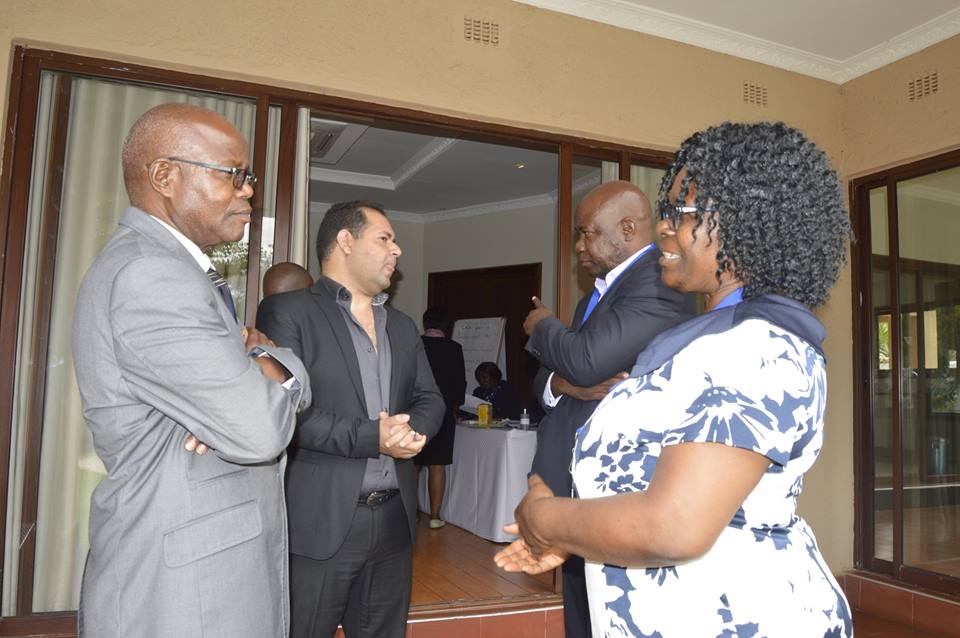
NBA Board Chairperson Dr Paul Zambezi (l) with UNEP Regional Advisor Dr Ossama AbdelKawy at First National Biosafety Clearing House Twangale Park in Lusaka
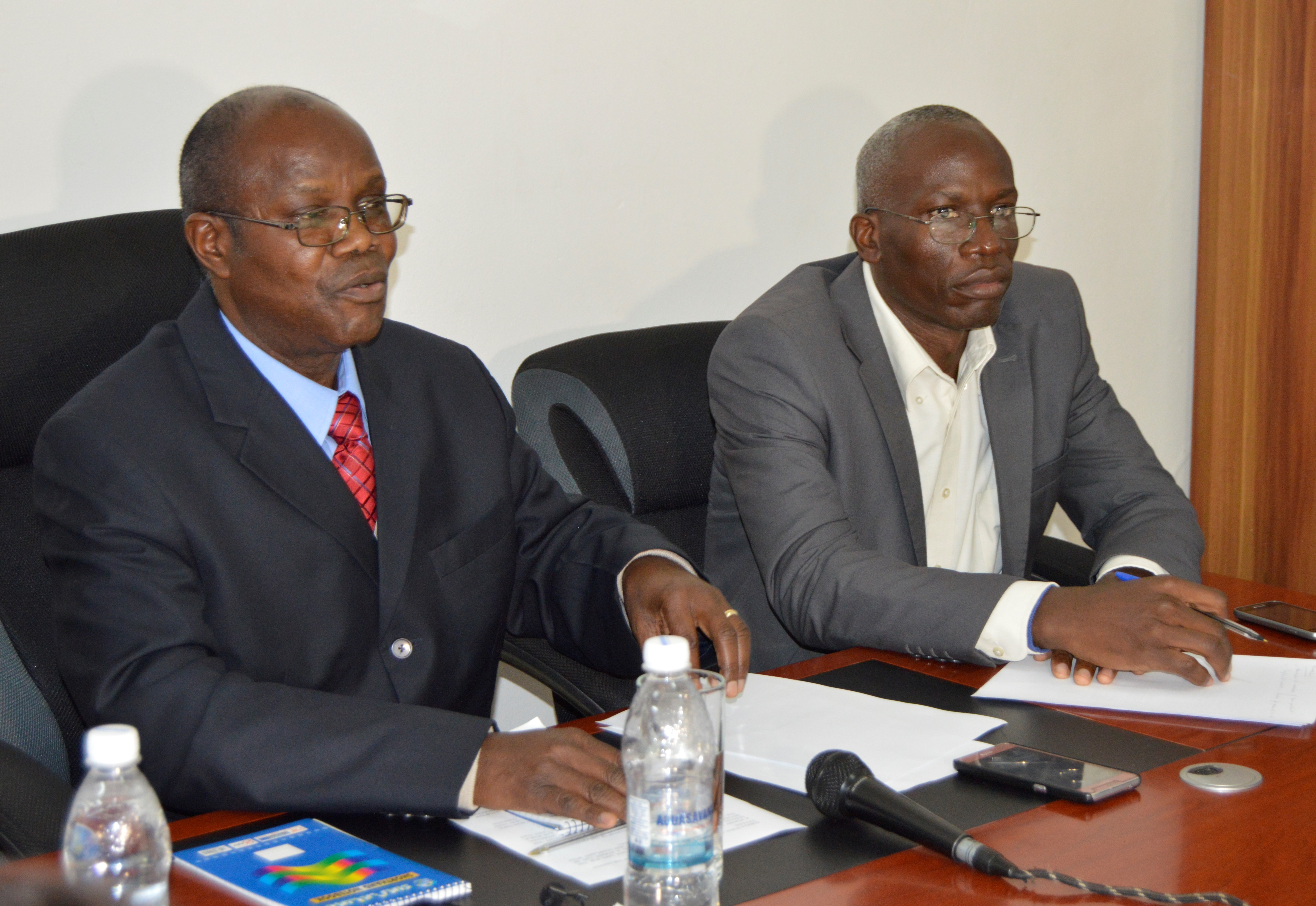
NBA Board Chairman Dr Paul Zambezi (l) with NBA SAC Chairman Dr Patrick Chikoti (r ) during a Press Briefing at NBA offices in Lusaka
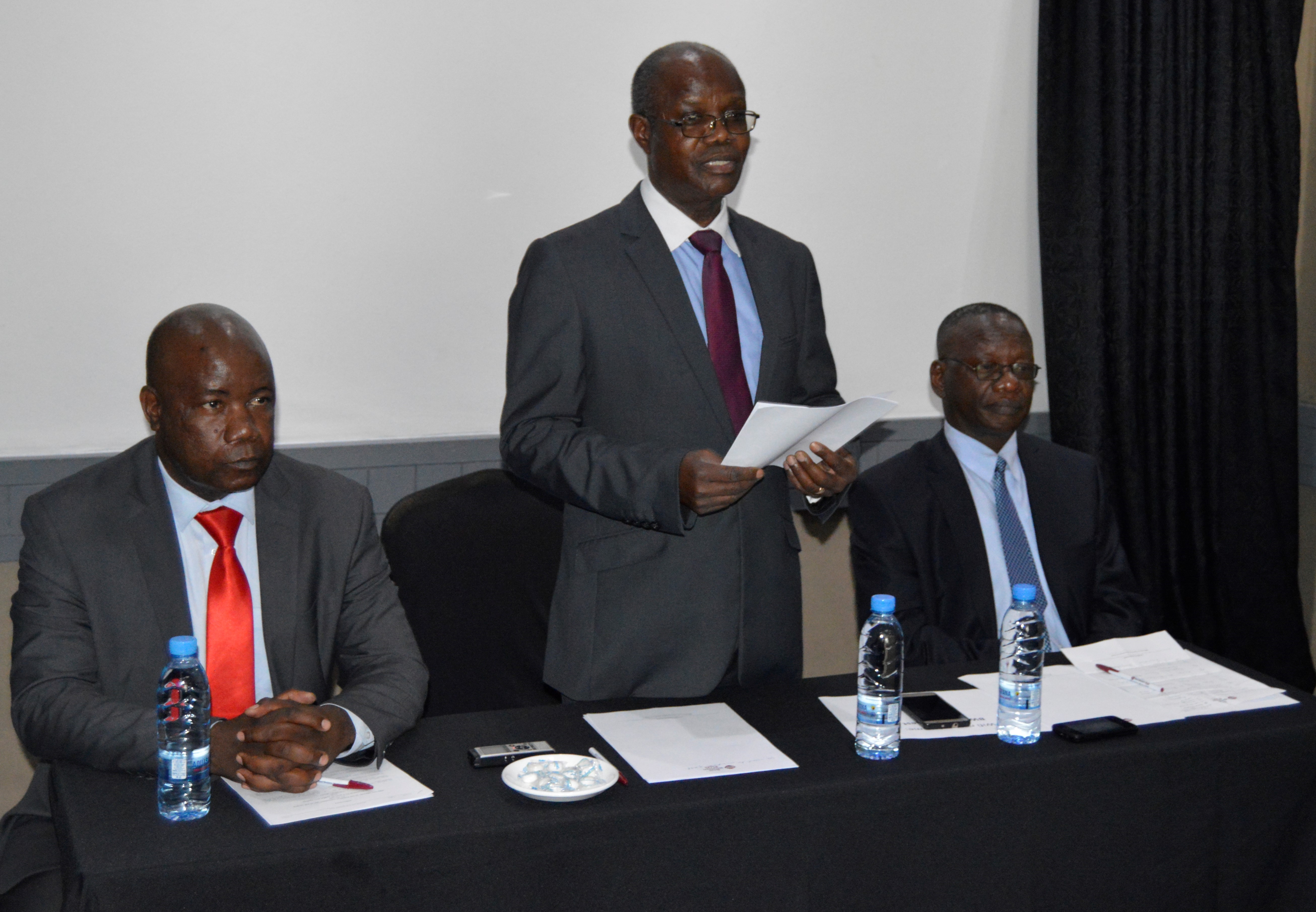
NBA Board Chairperson Dr Paul Zambezi (standing) with NBA CEO Mr Lackson Tonga (l) and NEPAD-ABNE Representative Dr. Silas Obukisia (r) during the official opening of the Guidelines and Regulations consultative workshop
At Best Western Plus Hotel, Lusaka.
Thursday 6th December, 2018
Government officials present
The delegation from the African Biosciences Network of expertise
The Scientific Advisory Committee (SAC) representatives
Researchers present
Stakeholders in Biotechnology and Biosafety
The media
Invited guests
Distinguished ladies and gentlemen
It is my pleasure to welcome you all to this very important consultative workshop.
As you may be aware, the mandate of the National Biosafety Authority (NBA) is to regulate research, development, import, export, contained use and release or placing on the market of any genetically modified organism whether intended for release into the environment, for use as a pharmaceutical, food, feed, processing or, product of a Genetically Modified Organism (GMOS).
You may also be alive to the fact that ‘Gene Modification’ in Zambia has remained and continues to be a sensitive matter in our country – notwithstanding the existence of the relevant policy and legal frameworks.
While there is a universal recognition and realization that Biotechnology can significantly contribute to social and economic development of any nation, there is even a greater need to put in place measures that can ensure that the application of biotechnology does not cause harm to human and animal health, as well as the environment.
Thus, to effectively and fully achieve its mandate the National Biosafety Authority needs to continuously build its regulatory capacity through such means as the enhancement of guidelines and standards in order to advance the nation’s quest for socio-economic development on one hand, and the need to protect human and animal health, the ‘Environment and ‘Biological ‘Diversity, on the other hand.
Accordingly, I am pleased to note that today we shall have another milestone in strengthening our regulatory mandate through putting in place guidelines for contained use and confined field trials.
Ladies and gentlemen,
Having such guidelines cannot be overemphasized as this will enhance the development of research and industrial capacity to safely apply biotechnology techniques for the enhancement of Zambia’s socio-economic and environmental wellbeing.
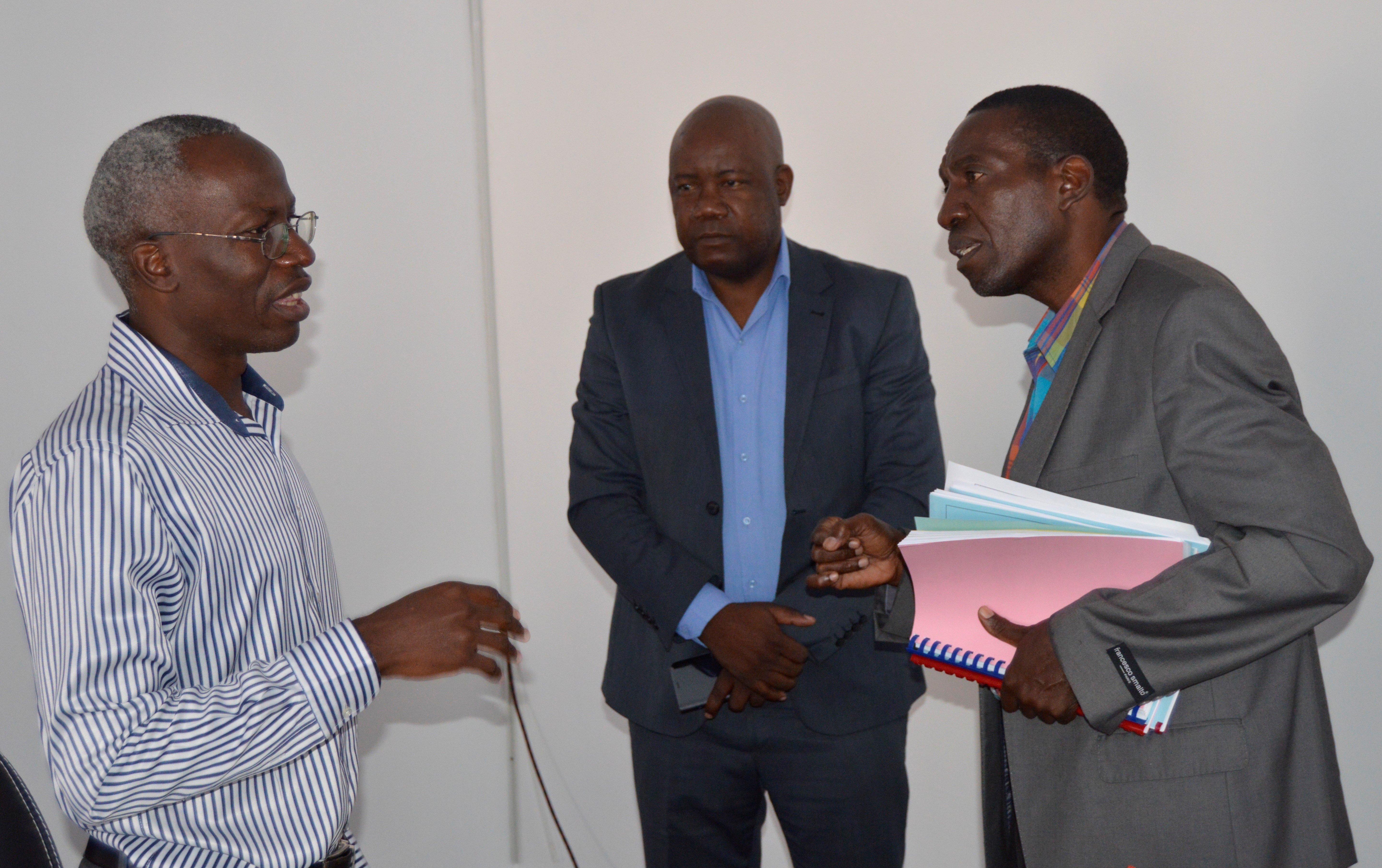
NBA CEO (m) with SAC Chairperson Dr Patrick Chikoti (l) and SAC vice chairperson Dr Evans Kaimoyo (r)
It is against this background that this consultative workhop has been organized.
The stakeholders participating in this workshop have been drawn from government ministries, research and development institutions and cooperating partners, among others.
At this juncture, allow me to make mention here that since we have recognized the need for continuous capacity building, we are privileged to have in our midst officials from a NEPAD Agency, the African Bioscience Network of expertise, who have come to provide technical support as we develop the guidelines.
It is hoped that this workshop will achieve the following goals:
- Provide guidelines for inspection of contained use and confined field trial facilities;
- Supporte the development of research and industrial capacity; and
- Promote the safe application of biotechnology techniques for the enhancement of Zambia’s socio-economic and environmental wellbeing.
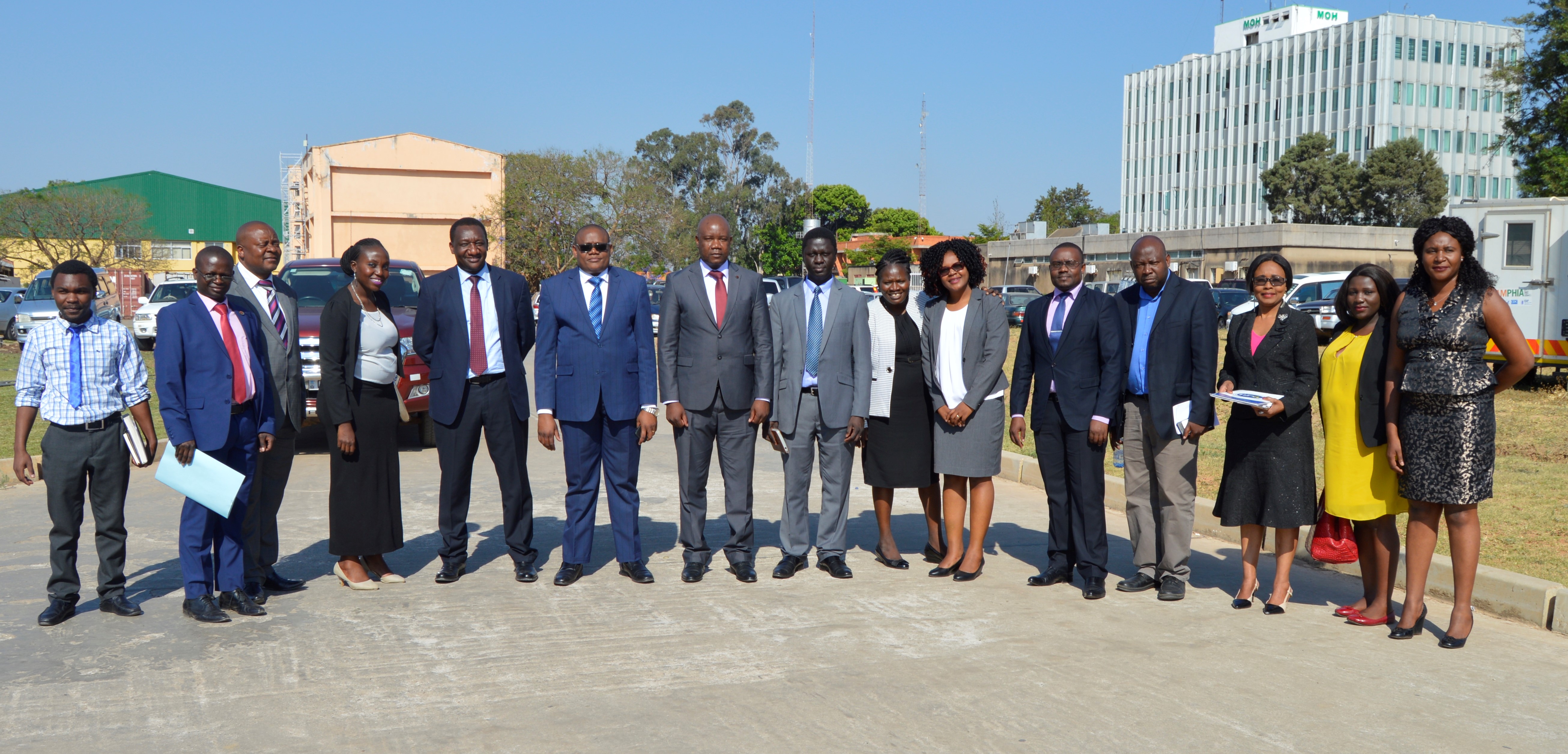
National Bio-safety Agency (NBA) Registrar Mr Lackson Tonga with Ministry of Health (MoH) Permanent Secretary (PS) for Administration Dr Kennedy Malama
In conclusion,
I wish you the best during the deliberations. It is my hope that this workshop will lead formulation of guidelines and standards that will address the shortcomings in ‘Biosafety.
I thank you – Board Chairperson of the National Biosafety Authority (NBA) Dr. Paul Zambezi during the official opening of the Guidelines and Regulations Consultative Workshop




















